Opinion
Eminent Indian Educationists Review The New Education Policy 2020
New Education Policy 2020 has been announced on 29 July, we review the policy along with top educationist of the country
Published
4 years agoon
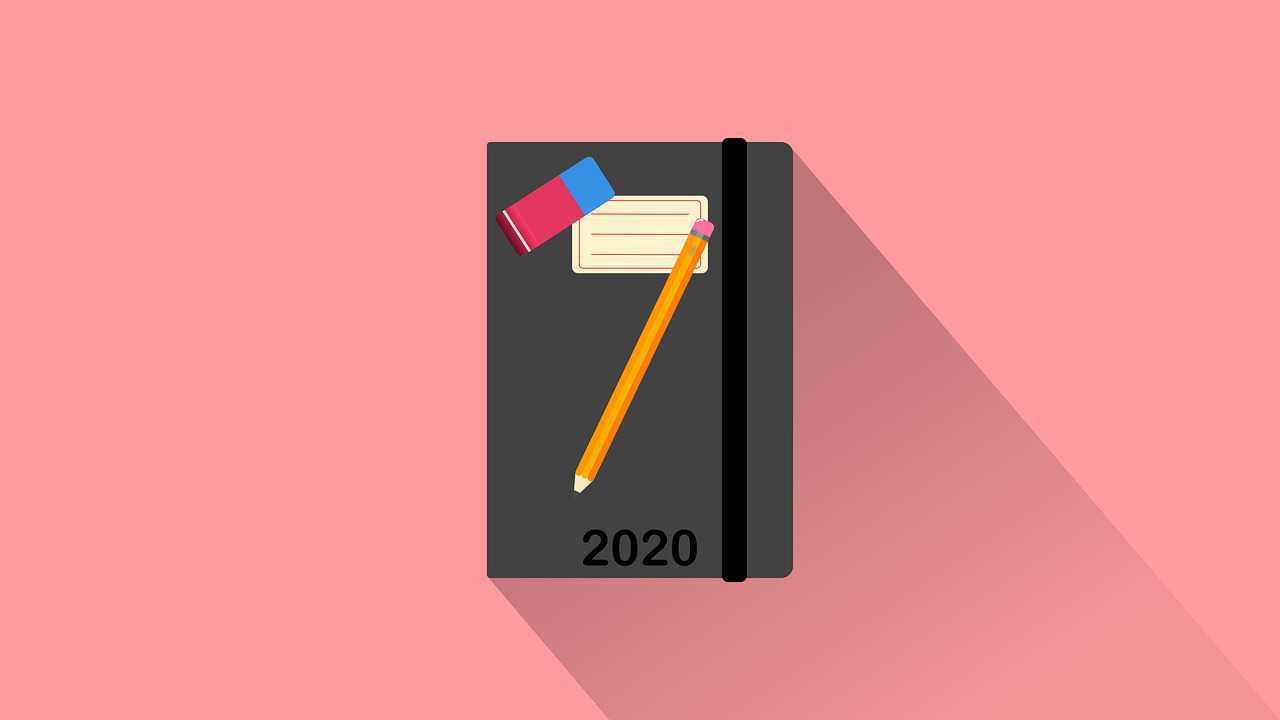
New Education Policy 2020 by the Ministry of Human Resource and Development (renamed: Ministry of Education) has been announced on 29 July 2020. The announcement was commenced by Union Ministers for Information and Broadcasting (I&B) and Human Resource Development (HRD), Prakash Javadekar and Ramesh Pokhriyal ‘Nishank,’ respectively. They were joined by Amit Khare and Anita Karwal, both Education Secretaries.
In the wake of COVID-19 pandemic, the subsequent lockdown is responsible for a delayed academic session in the schools this year. Although, it has been worked up to open the academic session from September-October 2020.
I am proud to share that #NEP2020 will ensure universal access to high-quality Early Childhood Care & #Education across India.
We will focus on developing social capacities, sensitivity, good behaviour, ethics, teamwork & cooperation among children through a joyful pedagogy. pic.twitter.com/obXXbUAjWd— Dr. Ramesh Pokhriyal Nishank (@DrRPNishank) July 29, 2020
#NEP2020
Good news for teachers!Teachers will be recruited through robust and transparent processes. Promotions will be merit-based, and a mechanism will be developed for multi-source periodic performance appraisals. pic.twitter.com/VoiLtszTZ3
— Dr. Ramesh Pokhriyal Nishank (@DrRPNishank) July 29, 2020
Talking about the New Education Policy 2020, here are major reforms for school education and other suggested improvements for school and higher education that the leaders announced:
- Universalization of Early Childhood Care Education (ECCE): NCERT will develop a National Curricular and Pedagogical Framework for Early Childhood Care and Education (NCPFECCE) for children up to the age of 8. ECCE will be delivered through a significantly expanded and strengthened system of institutions including Anganwadis and preschools
- National Mission on Foundational Literacy and Numeracy: There will be no rigid separation between academic streams, extracurricular, vocational streams in schools; Vocational Education to start from Class 6 with Internships
- 5+3+3+4 Curricular and Pedagogical Structure: this curriculum with 12 years of schooling and 3 years of Anganwadi/Pre-schooling
- Curriculum to integrate 21st Century Skills, Mathematical Thinking and Scientific temper
- No Rigid Separation between Arts & Science, between Curricular and extra-curricular activities, between Vocational and Academic streams
- Education of Gifted Children: Special emphasis will be given on Socially and Economically Disadvantaged Groups (SEDGs) which include gender, socio-cultural, and geographical identities and disabilities
- Gender Inclusion Fund: Gender Inclusion Fund and also Special Education Zones for disadvantaged regions and groups
- KGBVs up to Grade 12
- Reduction in Curriculum to Core Concepts: Students will have increased flexibility and choice of subjects. There will be no rigid separations between arts and sciences, between curricular and extra-curricular activities, between vocational and academic streams.
- Vocational integration from class 6 onwards
- New National Curriculum Framework for ECE, School, Teachers and Adult Education
- Board Examination will be Low Stakes, Based on Knowledge Application
- The medium of instruction till at least Grade 5, and preferably till Grade 8 and beyond in Home Language/ Mother tongues/ Regional Language
- Tracking Students Progress for Achieving Learning Outcomes: Assessment reforms with 360-degree Holistic Progress Card, tracking Student Progress for achieving Learning Outcomes
- National assessment centre, PARAKH: Performance Assessment, Review, and Analysis of Knowledge for Holistic Development will be set up as a standard-setting body
- NTA to offer Common Entrance Exam for Admission to HEIs
- National Professional Standards for Teachers (NPST): It will be developed by the National Council for Teacher Education by 2022, in consultation with NCERT, SCERTs, teachers and expert organizations from across levels and regions.
- Book Promotion Policy and Digital Libraries: Schools can be organized into complexes or clusters which will be the basic unit of governance and ensure availability of all resources including infrastructure, academic libraries and a strong professional teacher community.
- Transparent online self-disclosure for public oversight and accountability
- Technology in education: An autonomous body, the National Educational Technology Forum (NETF), will be created to provide a platform for the free exchange of ideas on the use of technology to enhance learning, assessment, planning, administration.
- Financing Education: The Centre and the States will work together to increase the public investment in the education sector to reach 6% of GDP at the earliest.
#NEP2020
Under National Education Policy 2020, cash-rich content will be reduced to its core essentials, and make space for critical thinking, holistic, enquiry-based, discovery-based, discussion-based, and analysis-based learning. pic.twitter.com/sSqId2wbUx— Dr. Ramesh Pokhriyal Nishank (@DrRPNishank) July 29, 2020
We spoke to some of the top educationists of the country to bring out the crux of the policy draft and find out their personal opinions about the NEP 2020. Excerpts:

Lt Col A Sekhar, Soldier Educationist
Challenges to be faced:
- It’s a progressive document, yet, without overarching long term vision.
- It’s a transformation attempted by the Indian government in the education sector but it falls short
- More on continuity, rather than transforming the main theme, despite some new ideas; especially in expected outcomes.
- Transformation of Assessment as suggested by the NEP is incredibly challenging.
- Outcomes are unrealistic in this milestone of NEP.
- Expected future jobs for the students does not match with the NEP reforms.
- Roadblocks will be natural in the stated reforms due to funding, governance and implementation.
The most serious of concerns for us, as educators/school leaders working at the ground level, are:
- Severe lack of resources on the ground level, both for private and public sector scholastic institutions
- The reluctance in mindset change due to deep-set fixed perception
- Huge, vested interests against the change
- Inherent insecurities of academia
- Societal indifference toward our teachers

Dr. Arunabh Singh, Director, Nehru World School
My top three takeaways from this are:
- One skill per year is a welcome and achievable target. It’s totally the need of the hour. I’m glad we have got this in the policy.
- Portfolio-based 360-degree assessment with inputs from teachers, students and also parents in a fantastic idea.
- The concept of National Professional Standards for teachers gets my thumbs-up as well.

Mr. Vishnu Karthik, Director, The Heritage Group of Schools
I’m pleasantly surprised! The NEP clearly acknowledges the need to embrace output focused reform rather than input focused reforms. The devil is in the details, but the new NEP has touched upon some key levers which will have a high impact on student learning levels. One is, of course, bringing on ECCE into NCF. Another is the decision to reduce the curriculum into the core. This will provide significant opportunity to focus on critical skills and capacities and would be gateway reform on curriculum and assessments. What is heartening is to see many reforms focused on assessments especially on National Assessment Centre and tracking of student progress on learning outcomes. These will bring in much-needed attention and accountability on learning progress.
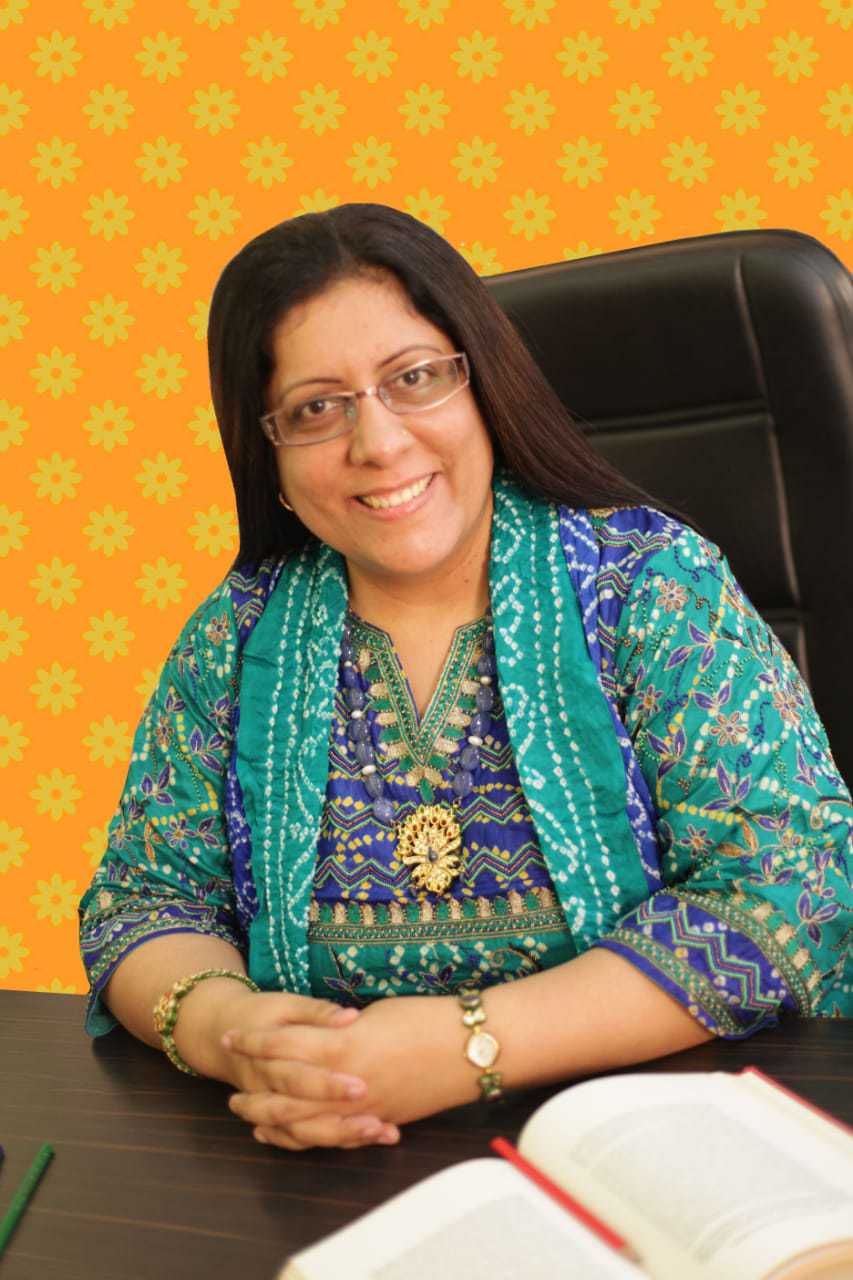
Dr. Swati Popat Vats, President, Early Childhood Association & Association for Primary Education and Research
It’s a proud moment for our country that after 34 years, our new National Education Policy is released. We may dissect it all we want, but let's start by congratulating the government and the committee that worked hard on ensuring that vision of millions of Indian educators and policymakers is developed for the larger enhancement of education of our country. Also, an important move is to rename the Ministry of HRD to the Ministry of Education (MoE). The new policy is an integrated yet flexible approach to education but the ‘devil’ will, of course, be in the details!
“The National Education Policy 2019 envisions an India centred education system that contributes directly to transforming our nation sustainably into an equitable and vibrant knowledge society, by providing high-quality education to all.”
1. Most importantly, the commitment of ECCE to children from age 3 onwards has been honoured in the new education policy.
2. ECE for all by 2030, this is worth applauding and achievable only with the cooperation of all state governments.
3. A national curriculum framework for ECCE is laudable, but the devil here will be how much say each state will have in this as it is imperative that a common guideline and goal should be drafted and state governments should not have the power to deviate from these essentials. As it is not fair for young children in different states to get a differing head start in life.
4. A preparatory class called ‘Balvatika’ in Anganwadis for 4 to 5-year-old children? Preparatory for what? Will they not follow the foundational age group of 3 to 8 years?
5. A welcome initiative is the National Foundation of Literacy and Numeracy Mission. We hope that literacy would Include first and second languages. And an earnest hope that numeracy designed by the foundation should be found in the curriculum and textbooks used by schools
6. The Policy takes cognizance of the differences in the development of cognitive abilities in children. The flexibility in the first five years will enable equalising of the multiple cognitive abilities of children.
7. 4 years integrated B.Ed degree by 2030, but what about ECE? Still no guidelines or a common course for ECE teachers!
8. A common National Professional Standards for Teachers (NPST) will be developed by the National Council for Teacher Education by 2022, in consultation with NCERT, SCERTs, teachers and expert organizations from across levels and regions. Will this include ECE teacher courses?
9. 6% GDP on education is a welcome move, how much on ECE? This needs to be identified too.
10. ‘Parakh’, the National assessment centre, we sincerely hope that they also define assessment for early years so that developmental delays and learning lags can be identified and rectified early on.
11. It takes a village to raise a child, and the village identified in this policy for ECE is jointly the Ministries of HRD, Women and Child Development (WCD), Health and Family Welfare (HFW), and Tribal Affairs. How this village works together will decide the success of ECE in this country.
12. NCERT will develop a National Curricular and Pedagogical Framework for Early Childhood Care and Education (NCPFECCE) for children up to the age of 8. A welcome move, ECA is hopeful that states will ensure the implementation of the same and thus remove the traditional, formal, stressful curriculums being followed by many preschools. The policy advocates that children of ages 3-8 have access to flexible, multifaceted, multilevel, play-based, activity-based, and discovery-based education. How this will be implemented and assured is going to be work in progress.
13. ECCE will be delivered through a significantly expanded and strengthened system of institutions including Anganwadis and preschools that will have teachers and Anganwadi workers trained in the ECCE pedagogy and curriculum – the question is what will this training comprise of? This needs to be identified at the earliest else different states will have different standards and quality of ECE teachers.
14. Mother tongue is a good move but difficult to implement. In cities where multiple language children are in the same class, which language will the teacher teach in?
15. Transparent public self-disclosure of all the basic regulatory information, as laid down by the State School Standards Authority (SSSA) will be used extensively for public oversight and accountability. The SCERT will develop a School Quality Assessment and Accreditation Framework (SQAAF), will this include ECE?
16. A single pedagogical unit called the “Foundational Stage." It is necessary, therefore, to develop and establish such an integrated foundational curricular and pedagogical framework, and corresponding teacher preparation, for this critical Foundational Stage of a child’s development. How schools will work this out and train already existing teachers in this will be the struggle? Also, this needs to be part of ECCE teacher training programs, and other teacher training programs.
17. Also, does it mean that exiting private standalone preschools can now extend to grade 2?
18. A very heartening inclusion is that all the school children will undergo regular health check-ups and health cards will be issued. We hope this will include ECE children, too.
19. A good initiative for the health of young children is the inclusion of an energizing breakfast in addition to midday meals.
Overall the new education policy is a great vision to change the educational landscape in this country and it vitalises education by ensuring that ECE becomes the starting point of education for all children.
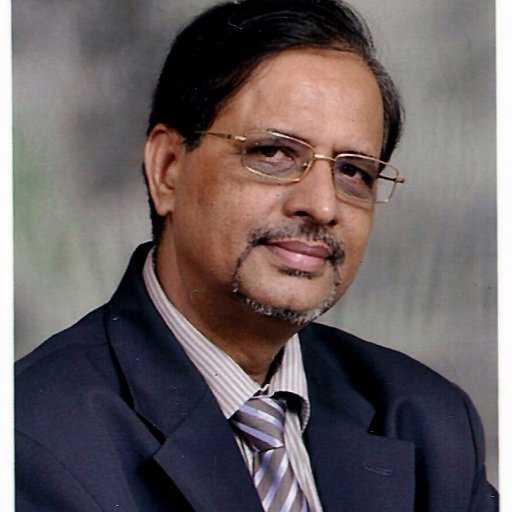
Mr. Ashok Pandey, Director, Ahlcon Public and International Schools
The NEP, which has seen the light of the day after 35 years, makes a refreshing and encouraging read.
- The policy lays down the vision of equity and excellence of every child. Aligning the policy with India's obligation to Sustainable Development Goals (Goal 4), the policy is clear on commitment and intent.
- Bringing back the children who are out of the school for whatever reason and also, ensuring 100% service to adult education is likely to fulfil the commitment of education for all and lifelong learning.
- The target of achieving 50% enrolment in higher education from the current level of 26% is in line with the enrollment in higher education in most of the developed countries. To achieve this, the Universalisation of secondary education is must, and the policy rightly speaks about it.
- To make education equitable and accessible, the creation of a scholarship pool for the socially disadvantaged group is a welcome step.
- For an education system to be progressive, holistic, and inclusive, a degree of flexibility is a must. I am happy that flexibility in courses and curriculum, pedagogy, assessment, and technology has the full attention of the policy. My interpretation of the fine print suggests that short-term skill-based courses with micro-credentials will find its way into the system.
- It is heartening to note that there is an express desire to foster student agency and include their voices and choices, through student parliament has been identified as an essential feature of the policy.
- Teachers are the critical link between the student's aspirations and policy intent. Investment in teachers, their capacity building and bringing in accountability is a valuable exercise. The policy has laid down the guidelines for recruitment, retention, standards, and framework for the teachers.
- The purpose of education is not only to add grades, years, and certification. The purpose of education is to build societies. The NEP makes this vision clear.

Mr. Kanak Gupta, Director, Seth MR Jaipuria Schools
IT'S ABOUT TIME! God knows how many 'expert' panel discussions we've done on the drafts, at least there's some movement now. Does it deliver? Well.
- I'm happy about the introduction of mother tongue in primary grades. Hopefully, it'd reach the missionary schools, too.
- I'm happy about the focus on the shift of assessments and restructuring of the grade levels. However, implementation is the higher and tougher task. India is a country that changes every 100 km. A policy made in the metro cities may not reflect into similar implementation at ground level.
- Training of our teachers and changing patterns by 2022: huge task and mission. It's the nitty-gritty that's worried me. For instance, I'm excited to see planning for implementing Sanskrit. Surely a tough ask, especially in Southern states.
- I'm a big believer in collaborative projects and learning by doing. Kudos to the makers thinking about that.
- Surprised its light on core issues of cultural deracination. I was hoping for a clearer distinction between literacy and numeracy, too.
- Of course, focus on GER is positive. However, one thinks whether the new normal taught us that the world has changed at all? Should've probably reimagined teaching-learning on the hybrid model, should've done away with Universalisation, too.
- I firmly believe this should be an on-going task. No need for us to reinvent the wheel, but perhaps, just perhaps, look at a 3-5-year timeline to introspect and see where we are going, rather than wait for 35 years for a top-down decision to come.
Congratulations, we are under 'Ministry of Education' now Small but good change!

Ms Divya Lal, Managing Director, Fliplearn Education Pvt. Ltd.
The New Education Policy is a refreshing shift and a bold corrective action in our approach to education in India and we welcome it whole-heartedly. Technology will now play a much bigger role not just in planning and administration, but pedagogy, content, tutelage and assessment; which is both futuristic and transformative, to say the least. The increased focus on technology, digital empowerment of schools will encourage institutions to upgrade their technology infrastructure and offerings to more virtual and seamlessly integrated platforms. The virtual platforms/labs will also bring learning alive for students with an emphasis on visual and experiential components than Rote learning. With reduced insularity and greater freedom in students selecting their subjects of choice, the focus will return to holistic learning of all subjects, rather than a bent towards Maths and Sciences. All-in-all, the new policy is a great step in the right direction and we look forward to the new face of education in India.

Mr. Matthew Raggett, Educationist, Writer, Former Headmaster, The Doon School
NEP contains many proposals that are progressive in their intentions and many good schools in the country that have been working towards them for years. For some schools, this has meant a shift in pedagogy from rote delivery to the planning of tasks and experiences through which their students learn. For other schools, it has meant a move towards the international examination boards and a curriculum that includes inquiry-based learning.
For some teachers, it has meant relearning an entire approach to their work. Planning is no longer about which page in the textbook would be done today, it is about collaborative, backward planning from the objectives that will guarantee every child the same opportunity to learn.
If India really is to have an education system by 2040 that is second to none, there are things that will have to change within the educational landscape, along with the political and social landscape. Long-lasting change cannot come from schools alone when they are a part of a larger system that also needs to change.
While recognizing, identifying, and fostering the unique capabilities of each student is a worthy goal, the idea that this can be done by sensitizing teachers, as well as parents to promote each student’s holistic development in both academic and non-academic spheres, means changing people hearts and minds; a lot easier said than done.
To have no hard separations between arts and sciences, between curricular and extra-curricular activities, between vocational and academic streams, etc. in order to eliminate harmful hierarchies among, and silos between different areas of learning is another well-intentioned aim that will require a generation of teachers, parents, universities and employers to abandon their own hierarchies and biases.
For ethics and human & Constitutional values like empathy, respect for others, cleanliness, courtesy, democratic spirit, the spirit of service, respect for public property, scientific temper, liberty, responsibility, pluralism, equality, and justice to be developed in schools, our students will have to be able to look around and see these being taken seriously in every area of civil life and society.
To move the focus on regular formative assessment for learning rather than the summative assessment that encourages today’s ‘coaching culture will have an enormous impact on the quality of learning and understanding developed in schools, but to follow it up by a Common Entrance Exam for admission to HEIs will undermine that effort.
I think that the NEP will provide a much-needed opportunity for us to look at where we are and to reflect on where we want to be. The work of moving to that destination with our schools by 2040 is going to be a challenge that anyone invested in education is willing to take on, but not one that everyone in schools is necessarily equipped, qualified or able to take on at the moment.

You may like
-


Marked by Marks: The Stereotyping of Student Potential
-


Ivy Pressure Unveiled- The Need to Look Beyond the Ivy Gates
-


Ooty Set to Host India’s Premier Liberal Arts Symposium: LASSI 2024
-
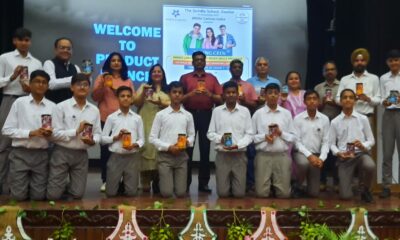

Scindia School Students Launch Start-Ups with White Canvas India’s Young CEO Program
-


Unsupervised Explorations: Rethinking Student Trips
-


Mapping Green Careers: Guiding Students Towards Sustainable Job Opportunities
-


Pricey Presents, Precocious Pressures: The Cost of Gift-Giving to Children
-


Addressing the Transition From Classrooms to Coaching: The Shifted Focus
-


Questioning the Trend of Lavish Farewells- #FarewellFiasco
-


Young Birders’ Workshop Opens Registration for Children Aged 10-13 Years
Education
Unsupervised Explorations: Rethinking Student Trips
Published
2 days agoon
April 23, 2024
In a tale of youthful exuberance and unforeseen peril, six students from Class 12 embarked on a journey to Goa, a rite of passage celebrated by many as a final hurrah before stepping into adulthood. With permission from their parents, who were perhaps too trusting or caught up in their own lives, the group set out with excitement pulsing through their veins. Upon landing, they were greeted not just by the balmy Goan air but by three massive SUVs, reserved for their adventure—a promise of freedom and the thrill of the open road.
Their accommodation was a sprawling villa, costing a small fortune at 70,000 INR per night, equipped with private pools and luxuriously appointed rooms. It was a palace for kings and queens of the night, a haven for six souls intertwined in the throes of adolescence. Three rooms for three couples, the arrangements were a testament to their intentions, seeking privacy and moments of unchecked passion under the guise of a holiday.
As the days unfolded, the allure of Goa’s vibrant nightlife beckoned. The students, drawn to the magnetic pull of music and dance, found themselves in the heart of the party scene, clubbing into the early hours. It was here, amidst the revelry, that they encountered individuals with sinister motives—drug peddlers who saw not just customers but vulnerable targets in these wide-eyed teenagers.
Swept up in a desire to appear worldly and sophisticated, the group made a decision that would pivot their holiday from a dream to a nightmare. They purchased drugs, a choice made without foresight or understanding of the consequences. Their naivety became their downfall when the police, vigilant and unyielding, caught them in possession of these illegal substances.
The aftermath was swift and severe. The teenagers, underage and unprepared for the legal ramifications, were thrust into the cold reality of juvenile custody. Their parents, irrespective of their affluence, were faced with a situation no amount of money could easily resolve. Frantic and fearful, they did everything within their power to secure their children’s release, confronted with the harsh truth of their offspring’s actions.
This story, inspired by real events, serves as a stark reminder of the dangers lurking behind the facade of freedom and the allure of adulthood. It raises pressing questions about the role of guardianship and parental oversight in the lives of teenagers standing on the precipice of adulthood.
Could this grave misstep have been avoided had there been a local guardian present, a guiding light in unfamiliar territory? Would a more vigilant approach from the parents, a pause to question and understand, have rewritten the story’s conclusion? This incident forces us to confront the reality of our responsibilities towards our youth—not just to grant them freedom but to equip them with the wisdom to navigate it. As we ponder the delicate balance between trust and caution, we must ask ourselves: At what cost does freedom come, and are we doing enough to ensure that the journey into independence does not lead to a fall from grace?
To read more on such trends that need to be called out and #un-trended, head to the April issue of our magazine here.
Education
Pricey Presents, Precocious Pressures: The Cost of Gift-Giving to Children
Published
3 days agoon
April 22, 2024
In the intricate fabric of contemporary society, entwined with the threads of status and materialism, the ritual of gift-giving to young children has morphed into a showcase of wealth and social stature. This tale shines a light on the ripple effect of such extravagance through the eyes of Ayaan’s peers, young souls caught in the whirlwind of competition and comparison.
When Ayaan arrives at school with sneakers worth 80k or brandishes the latest iPhone as casually as a textbook, it’s not just a display of wealth; it becomes a benchmark, setting aflame a cycle of envy and desire among his classmates. The children, innocent in their yearnings, unknowingly step onto a treadmill of materialistic pursuit, urging their parents towards the edge of financial prudence in a bid to not fall behind.
The spectacle reaches its zenith when Ayaan, in a display of unparalleled opulence, gifts iPods as return gifts on his birthday. An act, while grand, sends shockwaves through his circle, planting seeds of expectation and entitlement in young hearts. Parents, caught between nurturing happiness and teaching value, find themselves navigating a treacherous path of societal pressure and fiscal responsibility.
As each child in Ayaan’s orbit feels compelled to mirror his lavish lifestyle, the essence of childhood camaraderie is shadowed by the looming spectre of materialism. Friendships, once untainted by the world’s complexities, now bear the weight of economic disparity. The playground becomes a silent witness to conversations not of games and dreams, but of gadgets and brands, a testament to a culture veering away from the innocence of youth.
The impact extends beyond the tangible, chipping away at the pillars of equality and mutual respect. As peers vie to outdo each other in a race fuelled by parental indulgence, the divide widens not just in their possessions but in their perceptions of self-worth and success. The classroom, a microcosm of society, reflects a disturbing trend of measuring one’s value through the lens of ownership and extravagance.
This narrative, while centred on Ayaan and his affluent displays, casts a spotlight on the broader societal implications of such gift-giving practices. It prompts a critical examination of the values we impart to our children and the world we aspire to create for them. As we navigate this maze of materialism and the stories of Ayaan and his peers unfold, they serve as a mirror to our collective conscience, urging us to reconsider the legacy we wish to leave behind. The question that beckons us to reflect is profound: Are we raising a generation that values possessions over people, status over substance?
To read more on such trends that need to be called out and #un-trended, head to the April issue of our magazine here.
Education
Addressing the Transition From Classrooms to Coaching: The Shifted Focus
Published
6 days agoon
April 19, 2024
In the bustling academic corridors of Woody High, nestled amidst the verdant suburbs of a thriving city, the story of Vikram, a bright and ambitious student, begins to unfold. Vikram, like many of his peers, found himself at a crossroads as he stepped into the crucial years of 11th standard, caught between the traditional path of school education and the burgeoning trend of dummy admissions.Classrooms to Coaching: The Shifted Focus
The lure of coaching centres, promising a direct route to success in competitive exams, became increasingly irresistible. Vikram watched as one by one, his classmates traded the familiar setting of classrooms for the rigorous regimen of coaching institutes. The promise was simple: a focused preparation tailor-made for cracking entrance exams, seemingly a pragmatic choice in an increasingly competitive world.
However, this exodus from school to coaching centres revealed a deeper malaise within the education system. Schools, once vibrant communities of learning and growth, had slowly morphed into factories churning out board exam results. The holistic development of students, their readiness for the world beyond the gates of Woody High, seemed to have taken a backseat to the singular pursuit of academic scores.
Vikram’s decision to join the coaching bandwagon was met with a mix of hope and apprehension. The initial months were a blur of new concepts, relentless practice sessions, and the constant pressure to outperform. Yet, as the novelty wore off, Vikram found himself yearning for the missed debates in history class, the group projects in science, and the sense of belonging that came with being part of the school community.
The turning point came when Vikram, amidst his packed coaching schedule, volunteered for a community project. The experience was eye-opening, highlighting the gap between the rote learning at coaching centres and the practical knowledge and soft skills required in the real world. It dawned on Vikram that education was not just about clearing exams but about building a foundation for life.
As Woody High grappled with the dwindling numbers of students in its classrooms, it became evident that a change was needed. Schools had to evolve beyond their board-result orientation, integrating curriculum with real-world applications, fostering critical thinking, and preparing students for life’s myriad challenges.
The story, based on real incidents, raises the question that looms large, as we reflect on the narrative of #ClassroomOrCoaching: How can schools reclaim their role as sanctuaries of holistic education, ensuring they remain relevant and valuable in the lives of students like Vikram, not just as conduits to board results but as launchpads for their futures?
In a world where the race to the top often overlooks the essence of learning, can we afford to let coaching centres replace the rich, multifaceted experience of school education?
To read more on such trends that need to be called out and #un-trended, head to the April issue of our magazine here.
Education
Questioning the Trend of Lavish Farewells- #FarewellFiasco
Published
1 week agoon
April 18, 2024
Imagine your child is attending their Year 12 farewell. It is a night they have been looking forward to, marking the end of their school journey and the start of something new. The atmosphere is charged with excitement, laughter, and the bittersweet feeling of saying goodbye. As the evening wraps up, the buzz does not fade; it shifts to the streets. A group of friends, adrenaline still running high from the night’s celebrations, decide to extend the farewell with a car rally. Among them is Aarav, driving his family’s SUV, a vehicle too powerful for his inexperienced hands.
The city sleeps as the convoy of cars snakes its way through the deserted streets, the hum of engines breaking the night’s silence. Aarav, feeling the thrill of the chase, pushes the pedal down, the speedometer needle climbing higher and higher. His friends, in the car beside him, cheer him on, the competition heating up as they approach the ring road. It is a wide stretch, seemingly perfect for their race, away from the prying eyes of the night.
But in a heartbeat, the night turns tragic. Aarav loses control. The SUV, now a projectile, careers off the road, skidding and tumbling for what seems like an eternity. The aftermath is a scene of devastation. The vehicle, unrecognisable, lies in ruins, and silence once again claims the night, now heavy with the weight of consequences.
By the time the first light of dawn touches the sky, the police are at the scene, piecing together the events. The accident leaves one young soul lost to the night and another battling for life in hospital. Questions swirl around the circumstances that led to this moment. Was it the rush of speed, a momentary lapse in judgement, or something more? The community is left reeling, grappling with the reality of a celebration turned catastrophe.
As the investigation unfolds, the police sift through CCTV footage, trying to trace the sequence of events and the other vehicles involved. Speculations arise that the tragedy was the result of a high-speed race gone wrong. Amidst this, a family mourns the loss of their child, a farewell that was meant to be a celebration now a memory marred by loss and regret.
This story, though actual, has been anonymized to protect the identity and privacy of the student involved. It highlights a critical issue prevalent in communities worldwide: the trend of extravagant farewells escalating into dangerous activities, posing threats not only to the students but also to society as a whole.
As we reflect on this story, it compels us to ask: Is the pursuit of a grand goodbye worth the price of a life? How do we balance the celebration of milestones with the responsibility we owe to our children’s safety and to each other? This tale, inspired by true events, leaves us pondering the traditions we uphold and the lessons we impart to the young minds we are nurturing for the future.
To read more on such trends that need to be called out and #un-trended, head to the April issue of our magazine here.
Education
Reviving School Education: Countering the Coaching Centre Dominance
Published
2 weeks agoon
April 11, 2024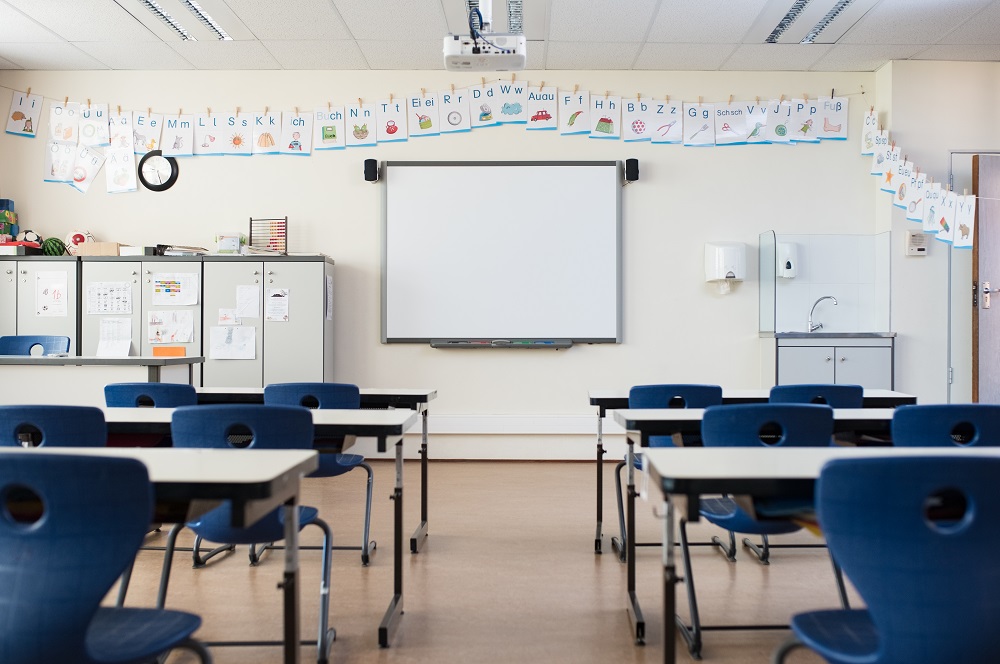
In recent years, a troubling trend has emerged within the educational landscape: the rise of “Dummy Admissions,” where students formally enrolled in schools are effectively abandoning the classroom in favour of coaching institutes. This phenomenon, particularly prevalent from the 11th standard onwards, sees students dropping out of school to prepare for competitive exams under the tutelage of coaching centres, which were originally intended to supplement, not supplant, school education.
The shift has been stark. Coaching, once a support system, has transformed into a parallel education industry, with some arguing it overshadows the broader developmental benefits of traditional schooling. This evolution poses a critical question: How can schools reclaim their role not just as preparatory grounds for board exams but as sanctuaries of holistic education that truly prepare students for life?
The Diminishing Role of Schools
The primary role of any educational institution is to foster an environment conducive to learning, curiosity, and personal growth. Schools are meant to be arenas where young minds receive a balanced education — academically, socially, and emotionally. However, the allure of scoring top marks in competitive exams has tilted the focus sharply towards rote learning and intensive exam preparation, often at the expense of holistic development.
The Coaching Conundrum
Coaching centres operate with a laser focus on results, primarily targeting competitive exams like the JEE, NEET, and others. This narrow approach prioritises immediate academic results over long-term learning and personal development. Students, driven by the pressure to excel in these high-stakes environments, often find themselves estranged from the broader educational experiences that school offers — experiences that are crucial in shaping well-rounded individuals capable of adapting to life’s varied challenges.
Reclaiming the Sanctuary of Education
For schools to regain their central place in the educational journey of students, they must evolve to meet the diverse needs of their students. Here are a few strategies that could help schools reassert their relevance:
- Integrated Curriculum: Schools could integrate aspects of competitive exam preparation into their regular curriculum, thus reducing the need for external coaching. This would allow students to prepare for exams without missing out on the broader educational offerings of the school.
- Focus on Skill Development: Beyond academic prowess, schools should enhance their focus on developing critical life skills such as critical thinking, problem-solving, creativity, and communication. These skills are crucial for success in professional and personal life and can make schooling more relevant.
- Counselling and Support Services: Enhanced counselling services can help students navigate their educational pathways and career choices effectively. Schools should equip students with the tools to make informed decisions about their futures.
- Experiential Learning: Schools must emphasise experiential and contextual learning, making education a more engaging, practical, and enjoyable experience. This can be achieved through project-based learning, internships, and real-world problem-solving scenarios.
- Parental Engagement: Engaging parents in the educational process and informing them about the importance of a balanced education can help shift the focus from mere exam preparation to overall development.
- Promotion of Arts and Sports: Encouraging participation in arts, sports, and other co-curricular activities can enrich students’ educational experience and support the development of a wide range of skills.
As the educational landscape continues to evolve, the challenge for schools is not just to prepare students for exams but to prepare them for life. In a world increasingly dominated by coaching centres, schools must innovate and broaden their educational offerings to ensure they remain valued not just as conduits to board results but as launchpads for the futures of students. It’s about striking a balance between academic rigor and holistic development, ensuring that schools remain the nurturing grounds for the leaders of tomorrow.
To read more on such trends that need to be called out and #un-trended, head to the April issue of our magazine here.
Education
Rebalancing the Scales: The Urgent Call for Humanities in STEM-Dominated Curricula
Published
3 weeks agoon
April 4, 2024
In today’s educational landscape, the scales are heavily tipped towards Science, Technology, Engineering, and Mathematics (STEM) fields, a trend that has sparked a crucial dialogue on the role of humanities in shaping well-rounded individuals. This discussion is not just academic; it reflects a deeper question about the kind of future we envision for our society and the individuals who will lead it.
Extra focus on STEM subjects is a broader issue: the sidelining of humanities in educational institutions, which reduces the vast expanse of human knowledge and creativity to mere footnotes. Students struggling to find value and meaning in a curriculum that doesn’t cater to their passion for history, literature, and the arts underscores a significant gap in our education system.
Recent studies highlight this imbalance. According to the National Foundation for Educational Research, students exposed to a balanced curriculum that includes humanities alongside STEM subjects exhibit a higher level of critical thinking, empathy, and adaptability. These skills are crucial not just for personal development but for navigating the complexities of today’s global society. Furthermore, a report by the American Academy of Arts and Sciences on the state of the humanities in higher education points out that students who engage in humanities courses are better prepared for leadership roles, showcasing the intrinsic value of these disciplines in cultivating informed and compassionate leaders.
Despite these findings, the preference for STEM subjects remains dominant, driven by the perception of better job prospects and economic benefits. This preference has led to a significant reduction in the availability and quality of humanities education in many schools. The scarcity of staff for humanities subjects and the absence of facilities like language labs not only hinder students from pursuing their interests but also limit the educational community’s ability to foster a diverse set of competencies among its students.
The consequences of this imbalance are far-reaching. By prioritising STEM at the expense of humanities, we risk nurturing a generation equipped with technical skills but lacking in the critical thinking, empathy, and cultural awareness that are equally vital in addressing the challenges of our increasingly interconnected world. This dichotomy raises a pressing question: are we merely training the next generation of technicians and engineers, or are we committed to nurturing well-rounded individuals who can contribute meaningfully to society?
The journey towards a more balanced educational approach begins with acknowledging the value of all disciplines. For students, and indeed for our future society, the richness of education lies not in the depth of knowledge in a single field, but in the breadth of understanding across the spectrum of human experience. As we stand at this crossroads, the choice is ours: will we continue down the path of narrow specialisation, or will we embrace the holistic education that our future leaders deserve?
Education
Palette of Possibilities: Nurturing Creativity in Schools through Modern Art
Published
3 weeks agoon
April 4, 2024
In the sphere of education in India, modern art often seems to be overlooked, relegated to the periphery of the academic spectrum. As a student who has traversed the diverse landscapes of Indian education, from traditional classrooms to the unique environment of boarding schools and experiential learning hubs, I find myself yearning for a more comprehensive exposure to the world of artistic expression, particularly modern art. The need for schools to step up, take responsibility, and actively involve students in art events is paramount, as it not only opens doors to diverse career possibilities but also cultivates a rich tapestry of creativity that can shape the coming generations.
As children, artistic expression often comes naturally. Young minds are unburdened by self-doubt or the constraints of societal expectations. Pablo Picasso quoted, “Every child is an artist. The problem is how to remain an artist once we grow up,” encapsulates a poignant reflection on the innate creative capacity inherent in every individual. Modern art is not just about canvases and paint; it is a dynamic force that ignites imagination, critical thinking, and a deeper understanding of the world. Yet, in the rigid framework of Indian education, the appreciation for modern art is often confined to the sidelines, overshadowed by the emphasis on conventional subjects like science and economics. But here’s the societal humor in this drama – we’re living in an era where a meme can garner more attention than a paragraph from a history book. The world craves creativity, and schools need to acknowledge that modern art is not just a rebellious teenager’s way of expressing angst; it’s the language of innovation and adaptability.
One of the primary reasons why schools need to prioritize modern art is its unparalleled ability to nurture creativity. In a world that is rapidly evolving, fostering creative thinking is essential. Modern art challenges students to think beyond the conventional, encouraging them to question, experiment, and envision new possibilities. By integrating modern art into the curriculum, schools provide a platform for students to express themselves in ways that transcend the boundaries of traditional subjects.
Expressive classes, extending beyond the conventional painting and sketching, open up avenues for students to convey their feelings using colors, drawings, and various artistic mediums. These sessions serve as a sanctuary where students can explore the depths of their emotions and thoughts, transcending the limitations of verbal communication. By tapping into the world of abstract expressionism, students are given the freedom to communicate through art, allowing for a richer and more nuanced understanding of their inner selves.
Art events play a pivotal role in this process. Unfortunately, such opportunities are often sparse in the Indian education landscape. Cultural wit lies in the fact that many students are oblivious to the plethora of careers awaiting them in the creative industries. Schools need to take the initiative to expose students to art exhibitions, workshops, and interactive sessions that showcase the diversity of modern artistic expressions. These events not only broaden students’ perspectives but also serve as catalysts for potential careers in the arts.
The inclusivity of modern art is another facet that makes it indispensable in schools. Unlike some traditional subjects that may seem exclusive or difficult for certain students to access, modern art is a platform where everyone can find a voice. It accommodates diverse perspectives, allowing students of varying abilities, backgrounds, and interests to engage meaningfully with the subject matter.
In the context of a globalized world, where cultural understanding and appreciation are crucial, modern art serves as a bridge between different societies and histories. It exposes students to a rich tapestry of global artistic expressions, helping them develop a sense of cultural empathy and an appreciation for diversity. By studying modern art, students gain insight into the shared human experience that transcends geographical and cultural boundaries.
To fully harness the potential of modern art in schools, it is essential for educational institutions to take proactive steps. This includes providing adequate resources for art programs, organizing art events, and encouraging collaborations with local artists and art communities. By fostering an environment where modern art is valued and celebrated, schools can empower students to explore their creativity and recognize the broader significance of artistic expression.
In addition to fostering a conducive learning environment, organizing art events within the school can prove instrumental. These events may showcase the brilliance of local art forms, such as Rajasthani art like Phad, Thapa and Sanjhi, Thangka from Arunachal Pradesh and Madhubani from Bihar. By incorporating these regional nuances into the school’s art curriculum, students gain exposure to diverse styles and cultural influences, enriching their understanding of the broader art landscape.



(Images- Phad, Thangka, and Madhubani art from India)
Moreover, numerous case studies show that exposure to art can sensitize individuals to social issues. One compelling example is the impact of community-based art projects in urban slums. The Dharavi Art Room, a non-profit organization, has initiated various art projects in the Dharavi slum in Mumbai. Through murals and community workshops, the project aims to empower residents, especially children, providing them with a creative outlet and a platform to express their stories. This case study may explore the impact of art on community dynamics, individual empowerment, and awareness of social issues within the slum. Through mural paintings and collaborative art initiatives, these projects have not only beautified the surroundings but have also brought attention to critical issues, fostering a sense of community and social responsibility.
The integration of modern art into the Indian education system is not just a matter of aesthetics but a strategic investment in nurturing well-rounded individuals. It’s time for schools across the country to recognize the transformative power of modern art and actively work towards exposing students to its myriad facets. By doing so, we not only open doors to diverse career opportunities but also cultivate a generation of individuals who approach life with creativity, curiosity, and a profound appreciation for the beauty that art brings to the world.
Authored by-
Parinya Santlani,
Student,
Paradise School, Goa
Education
Lessons Beyond a Cricket Pitch: An IPL-Inspired School Curriculum
Published
4 weeks agoon
March 27, 2024
“As we tune into the electrifying atmosphere of the Indian Premier League, where the clash of willow against leather sends pulses racing, we’re not just spectators of a thrilling spectacle. We’re witnesses to a living, breathing classroom where science dances with agility, leadership commands the play, and economics paints the bigger picture. Today, let’s embark on a journey beyond the boundary ropes, exploring how the IPL isn’t merely a cricket tournament but a dynamic, fun-filled educational odyssey.”
The Science Behind the Ball and Bat
At the heart of cricket lies a ballet of physics, each ball bowled a lesson in motion, energy, and force. The journey of a cricket ball, from the bowler’s hand to the bat, is a vivid demonstration of aerodynamics in action. Factors like air resistance, spin, and the Magnus effect collaborate to dictate the ball’s trajectory. A spinner’s delivery, curving through the air, isn’t just a challenge for the batsman but a practical example of physics. The materials of the game, especially the cricket bat made from willow, offer insights into material science, chosen for their capacity to absorb the shock of the ball’s impact and minimize damage to the hands.
The biomechanics of players, whether it’s a batsman executing a perfect cover drive or a bowler’s seam position at the point of delivery, are a testament to the human body’s potential when understood and harnessed through the principles of physics. Integrating these aspects into the curriculum can transform a standard physics lesson into a riveting session that connects students’ passion for cricket with the wonders of science.
Leadership on and off the Pitch
The IPL is a crucible of leadership, each match a case study in strategy, decision-making, and human management. Players like Virat Kohli and Rohit Sharma, with their tactical acumen and ability to inspire their teams, embody the essence of effective leadership. “Sports has taught me a lot. It helps reveal character. Sport teaches you about facing challenges, overcoming challenges on a regular basis which apply to every work of life.” Kohli once remarked, encapsulating the spirit of sportsmanship that transcends the cricket field. This philosophy can seamlessly be integrated into educational discussions, illustrating how leadership isn’t confined to high-pressure matches but is equally relevant in group projects, student councils, and beyond. MS Dhoni, a legendary cricketer and former Indian cricket team captain also believes that it is important to push every youngster to take up sports. “Be it, mentally or physically, sport teaches a lot to the students and that actually helps in practical life. Sports should play a big role in students’ life and everyone should be pushed to it,”
The Economy of Runs and Rupees
The IPL, a dazzling spectacle of cricket, is also a multi-billion-dollar industry that serves as a fascinating model for financial literacy and understanding the global economy of sports. The auction room, where players are bid on like prized artworks, offers a live demonstration of market dynamics and valuation. Sponsorships, media rights, and merchandising around the IPL introduce students to concepts of branding, revenue generation, and the economic impact of sports on national and global scales. It’s a practical lesson in economics, illustrating how supply and demand, investment, and financial management play out in one of the world’s most popular sports leagues.
IPL: A Classroom Without Walls
The IPL’s fusion of high-stakes cricket with lessons in physics, leadership, and economics presents an unparalleled opportunity to make learning interactive and engaging. It encourages students to see the relevance of their studies in real-world scenarios, thus igniting a passion for subjects that might previously have seemed abstract or disconnected from their interests.
Incorporating IPL-themed lessons into the curriculum can transform the traditional classroom, making learning a lively, participatory experience. As students analyse match strategies, calculate batting averages, or explore the economic model of the IPL, they’re not just learning; they’re engaging with the material in a way that’s both meaningful and enjoyable.
Cricket commentator and former cricketer Ian Bishop‘s words resonate deeply here: “The heart and soul of the game is what makes it so special.” In the context of education, the IPL embodies this spirit, proving that when you blend passion with learning, the classroom becomes a place of endless possibilities and discoveries.
The Indian Premier League offers more than just entertainment. It provides a vibrant, multifaceted platform for learning, encompassing physics, leadership, and economics, among other subjects. By viewing the IPL through an educational lens, we can inspire students to engage deeply with their studies, showing them that education, like cricket, can be filled with excitement, challenges, and lifelong lessons.
Knowledge
Empowering the next generation: How mentorship shapes the future of young women’s professions
Published
2 months agoon
March 8, 2024
Mentorship acts as a cornerstone in empowering women across diverse professional landscapes. Studies reveal a strong correlation between mentorship and positive career outcomes for women. Using studies and real-world examples, this article talks about how mentoring shapes women’s career prospects.
Bridging the Gender Gap: The Power of Role Models
According to a 2021 study by McKinsey & Company and Lean In, women who have mentors are more likely to advance in their careers than those who don’t. This emphasizes how important role models are. Through mentorship, mentees are encouraged to believe that “if they can do it, so can I” by seeing successful women in their area. They are thus motivated to go after big dreams and defy society norms that might have initially deterred them.
Breaking Down Barriers: Access to Networks and Resources
Mentorship transcends mere guidance; it unlocks valuable networks and resources. Mentors, often established professionals, can connect their mentees to crucial individuals and opportunities. A 2023 study by the Harvard Business Review found that women with mentors are more likely to be connected to senior leaders and receive critical career advice. These connections open doors to job opportunities, training programs, and industry knowledge, propelling women forward in their careers.
Building Confidence and Skill Development
Mentorship fosters professional development by providing constructive feedback and valuable insights. A research published in the Journal of Career Development also found that mentorship programs significantly increase women’s self-efficacy and confidence in their abilities. Through personalized guidance, mentors equip their mentees with the skills needed to excel in their chosen field. This tailored approach empowers women to navigate challenges, develop critical thinking skills, and become well-rounded professionals.
Real-World Examples: Paving the Way for Success
Mentoring has an impact that goes beyond statistics. Consider the narrative of Meta Platforms’ COO, Sheryl Sandberg. Susan Wojcicki, the former CEO of YouTube, became Sandberg’s mentor. Sandberg acknowledges Wojcicki’s crucial assistance and direction throughout her career. In similar way, former PepsiCo CEO Indra Nooyi has talked about the important influence her mentor Jack Welch had on developing her leadership style and helping her succeed. These illustrations demonstrate how mentoring can significantly alter the career paths of women in leadership roles.
Investing in the Future: A Collective Responsibility
Mentorship is not a one-sided endeavor. Moreover, It fosters a culture of learning and exchange, benefiting both mentors and mentees. Mentors gain valuable leadership experience, stay updated with industry trends through interactions with mentees, and contribute to building a more inclusive and diverse future within their organizations.
The future of various professions and the empowerment of women hinges on funding mentorship programs. While individuals can actively seek mentorship within their networks or through specialized channels, organizations can design structured programs that pair women with experienced mentors. Every effort, no matter how big or small, helps create a world in which women prosper and realize their full potential in all spheres of the workforce.
To conclude, mentoring serves as a spark for women’s professional empowerment. Through facilitating access to resources, networks, and positive role models as well as skill development, mentoring sets the stage for a day when women may successfully traverse a variety of professions and realize their full potential. Together, we can actively seek guidance and engage in mentorship programs to help establish a better future for women in the workforce.
Authored by:

Dr. Kalpana Gangaramani
Founder & Managing Director,
Target Publications Pvt. Ltd.
Education
National Safety Day: The Importance of Teaching Good Touch and Bad Touch in Schools
Published
2 months agoon
March 4, 2024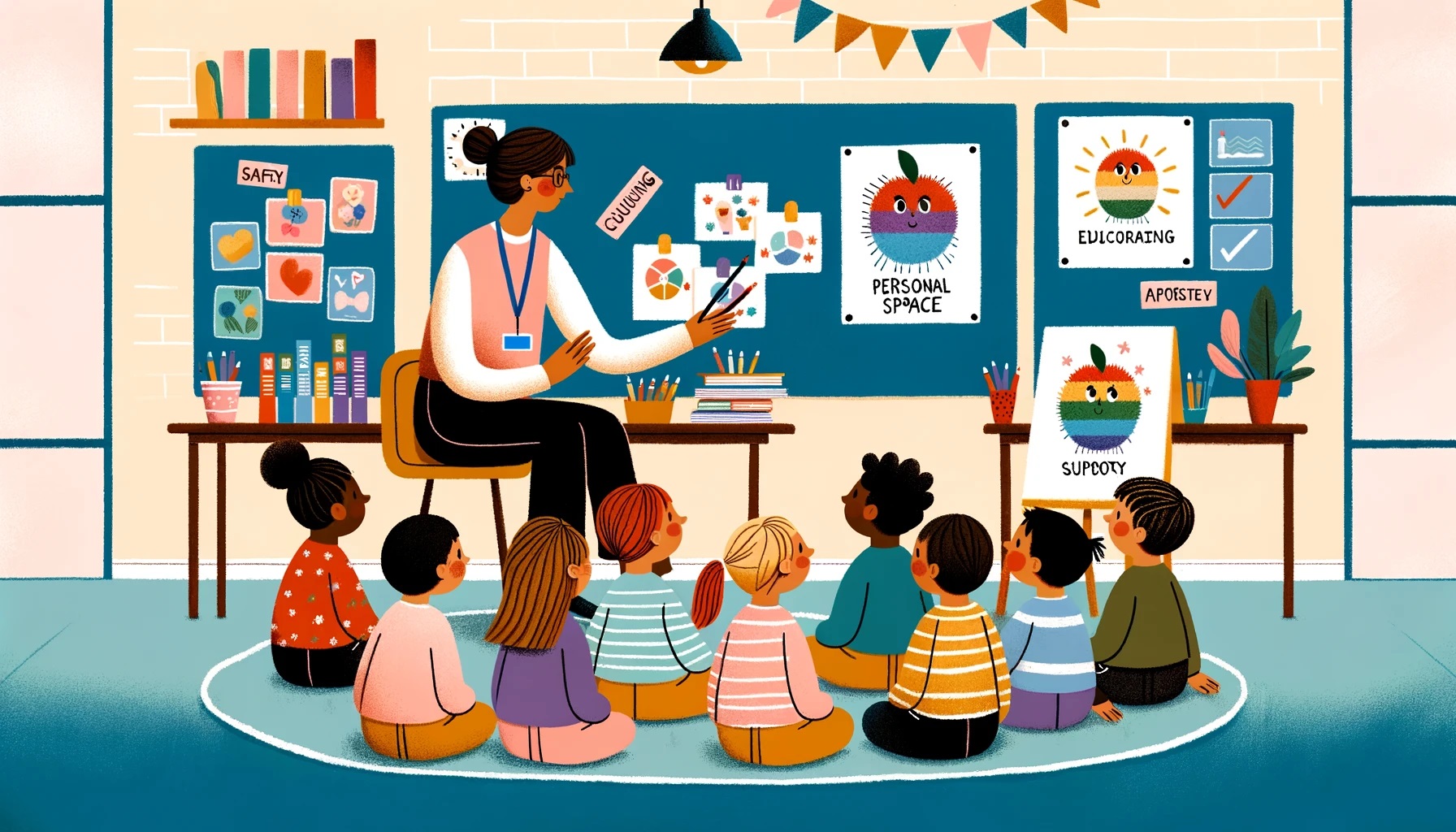
In the light of National Safety Day observed on the 4th of March each year, there’s a crucial aspect of safety that demands our attention—not just physical safety but the safety of our personal boundaries. This calls for an essential conversation about teaching children the concept of good touch and bad touch in schools, a topic that extends beyond the basics of traffic and environmental safety to the core of personal security and dignity.
Why, you might ask, is it vital to introduce this topic in the educational ecosystem? Simply put, knowledge is power. Educating children on the difference between a ‘good touch’ and a ‘bad touch’ empowers them to understand their rights, recognise inappropriate behaviour, and importantly, speak up. In an era where the safety of children should be paramount, this education acts as a shield, protecting their innocence and integrity.
But the conversation doesn’t stop with the children. It extends to the educators themselves. In the process of enlightening the young minds about safety, it’s equally critical for teachers to undergo training on the same subject. This dual approach serves a twofold purpose: a) it equips teachers to handle disclosures of inappropriate touch with sensitivity and the seriousness it demands, ensuring the right steps are taken to safeguard the child and b) it makes educators aware of their own actions, ensuring their interactions with students are always appropriate and beyond reproach.
The Protection of Children from Sexual Offences (POCSO) Act, implemented in India, underscores the importance of such education. The Act provides a legal framework to protect children against offences of sexual abuse, sexual harassment, and pornography while safeguarding the child at every stage of the judicial process. Incorporating awareness about the POCSO Act in school curriculums and teacher training programs reinforces the legal and moral responsibilities we hold towards our children.
Integrating this education into schools demands sensitivity, age-appropriate language, and a nurturing environment where children feel safe to express their concerns. It’s about building trust, ensuring every child knows they have a voice and that voice will be heard and respected.
For educators, this training should be an integral part of their professional development. Understanding the nuances of child psychology, the impact of their actions, and the legalities of child protection are essential components of their role. This knowledge not only protects the children but also the educators, fostering a safe and respectful learning environment.
Now, over to you, dear readers. Engaging in this dialogue is the first step towards change. Schools must be sanctuaries of learning, not just academically but socially and personally. As parents, educators, and members of the community, it’s our collective responsibility to advocate for and implement this crucial education. Share your thoughts, experiences, and suggestions. How can we, as a society, better protect our children? Your voice matters in shaping a safer future for our youngest citizens.
This conversation is not just necessary; it’s urgent. Let’s not shy away from it. Together, we can create a culture of safety, respect, and understanding, making every day a step towards a safer tomorrow for our children.
Newsletter

Marked by Marks: The Stereotyping of Student Potential

Ivy Pressure Unveiled- The Need to Look Beyond the Ivy Gates

Ooty Set to Host India’s Premier Liberal Arts Symposium: LASSI 2024

Scindia School Students Launch Start-Ups with White Canvas India’s Young CEO Program

Unsupervised Explorations: Rethinking Student Trips

Mapping Green Careers: Guiding Students Towards Sustainable Job Opportunities

Pricey Presents, Precocious Pressures: The Cost of Gift-Giving to Children

Addressing the Transition From Classrooms to Coaching: The Shifted Focus

Questioning the Trend of Lavish Farewells- #FarewellFiasco

Young Birders’ Workshop Opens Registration for Children Aged 10-13 Years

STEMpedia Successfully Completed Codeavour 5.0- India’s National Innovation Fest

Reviving School Education: Countering the Coaching Centre Dominance
CBSE to Initiate Pilot for National Credit System in Grades 6, 9, and 11

The Role of Marketing in Education: Navigating the New Educational Landscape

From Overwhelmed to Empowered: Strengthening Educator Skills for Success

NCERT Introduces Bridge Month Programme for Class 6 Amid Textbook Transition

Indian Embassy Advocates for India-US Collaboration in Education Sector

Nurturing Healthy Behaviors: The Role of Schools in Shaping Health-Conscious Citizens

CBSE Updates Exam Structure for 11th & 12th Class; Concept-based Questions Now 50% of Weightage

Sharing the spotlight: When parent and child take board exams together

Rebalancing the Scales: The Urgent Call for Humanities in STEM-Dominated Curricula

Palette of Possibilities: Nurturing Creativity in Schools through Modern Art

Empowering Minds: The Journey of My Guide Inside with Christa Campsall

The Potential of an Entrepreneurial Development Programme for Primary School Students

FPSB India and IIM Bangalore Forge Strategic Partnership to Advance Financial Education

Life of My Father: Dr. Jagdish Gandhi, a Pioneer in Education

Mayo College Announces New Leadership

Post-pandemic: Embracing Well-being in India’s Schools with My Guide Inside

Empowering the Future: The Success of Beti Bachao Beti Padhao in Girls’ Education

Is Students’ Data in Safe Hands in a Digital World?

Central Government Sets New Framework for Coaching Centres

FPSB India and IIM Bangalore Forge Strategic Partnership to Advance Financial Education

Radio Broadcasting in Schools: Creating a Platform for Student Voices

Kerala Introduces ‘Water-Bell’ Initiative in Schools to Boost Hydration

India to recognise Farsi as a classical language under New Education Policy

Farewell to a Pioneer: Dr. Jagdish Gandhi’s Enduring Legacy in Education

Anticipating a Progressive Leap: The Education Sector’s Hopes for Union Budget 2024

Lexicon Schools Spark Innovation with STEAM Fest

The Need to Preserve Newspapers for Bias-Free Education

A Voice for All Ages: The Enduring Legacy of Ameen Sayani in Indian Education

Seth M. R. Jaipuria School launches CBSE School in Bhiwadi, Rajasthan

From 2025-26, Indian Students to Get Two Opportunities to Sit for Board Exams

The Rising Leaders’ Summit 2024: A Timeless Learning for Future Educational Leaders

International Women’s Day 2024: Are We Not Special?

ISRO Launches Young Scientist Programme 2024 for Budding Space Enthusiasts

Teach for India Invites Applications for its 2024 Fellowship Program

Ministry of Women and Child Development Unveils National Curriculum Framework for Early Childhood Care and Education

World Theatre Day: Let Theatre Arts Make Classroom’s Showtime Spectacular!

India Sets 6-Year Minimum Age for Class 1 Admissions Nationwide

CBSE considering Open Book Exams for classes 9-12, to do a pilot run in November
SGEF2023 | Special Address by Rama Datt, Trustee, Maharaja Sawai Man Singh II Trust, Jaipur

ScooNews | After Movie | ScooNews Global Educators Fest 2023

Aftermovie | NIES2 UP Chapter | 21 Jan 2023

WEBINAR | Gamification in Education: How Digital Badges Can Boost Student Motivation and Engagement

ScooNews | WEBINAR| Importance of Physical Activity for Children at School | Plaeto

SCOONEWS | WEBINAR | WHY DIGITIZING YOUR SCHOOL IS A MUST | TEACHMINT

Keynote Address | Lakshyaraj Singh Mewar

Anurag Tripathi, Secretary, CBSE at SGEF2022

How schools can nurture every student’s genius

Aftermovie | SGEF2022 | Jaipur

Li Andersson | Minister of Education | Finland

Anurag Tripathi, Secretary, Central Board of Secondary Education (CBSE) discusses NEP2020

ScooNews | Early Ed Asia 2019 | Aftermovie
#PodarECEconf : Pursuing quality ECE

#CBSE Class XII #Results #Highlights

The interesting story of India’s educational system | Adhitya Iyer

A young scientist’s quest for clean water

The Danger of Silence: Clint Smith

National Digital Library of India is an initiative by HRD Ministry

Remembering Kalpana Chawla on her birthday!

Message from Sadhguru for Students!
Message from Sadhguru for Students!

The Untapped Genius That Could Change Science for the Better

Eddy Zhong: How school makes kids less intelligent TEDxYouth@Beacon

#TEDxCanberra : What if every child had access to music education…
Trending
-
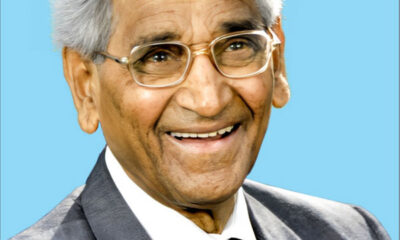
 Inspiration1 month ago
Inspiration1 month agoLife of My Father: Dr. Jagdish Gandhi, a Pioneer in Education
-
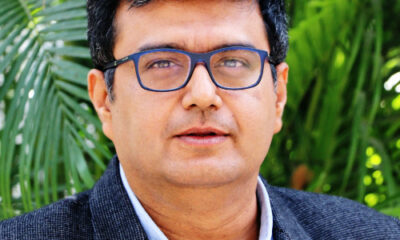
 Education3 months ago
Education3 months agoMayo College Announces New Leadership
-

 Education1 month ago
Education1 month agoPost-pandemic: Embracing Well-being in India’s Schools with My Guide Inside
-
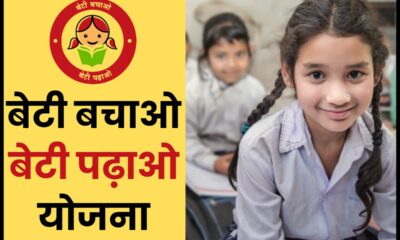
 Education3 months ago
Education3 months agoEmpowering the Future: The Success of Beti Bachao Beti Padhao in Girls’ Education
-

 Knowledge3 months ago
Knowledge3 months agoIs Students’ Data in Safe Hands in a Digital World?
-
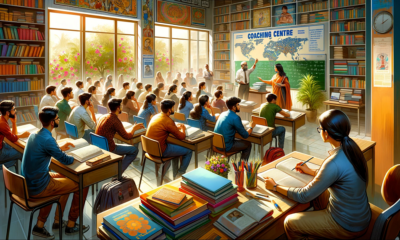
 Education3 months ago
Education3 months agoCentral Government Sets New Framework for Coaching Centres
-
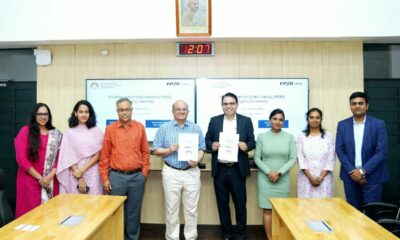
 Education4 weeks ago
Education4 weeks agoFPSB India and IIM Bangalore Forge Strategic Partnership to Advance Financial Education
-

 Education2 months ago
Education2 months agoRadio Broadcasting in Schools: Creating a Platform for Student Voices
-

 Education2 months ago
Education2 months agoKerala Introduces ‘Water-Bell’ Initiative in Schools to Boost Hydration
-
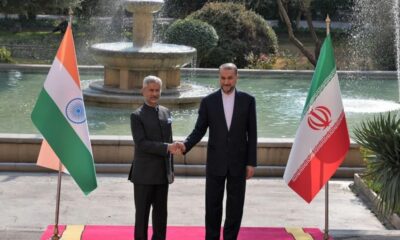
 Education3 months ago
Education3 months agoIndia to recognise Farsi as a classical language under New Education Policy


